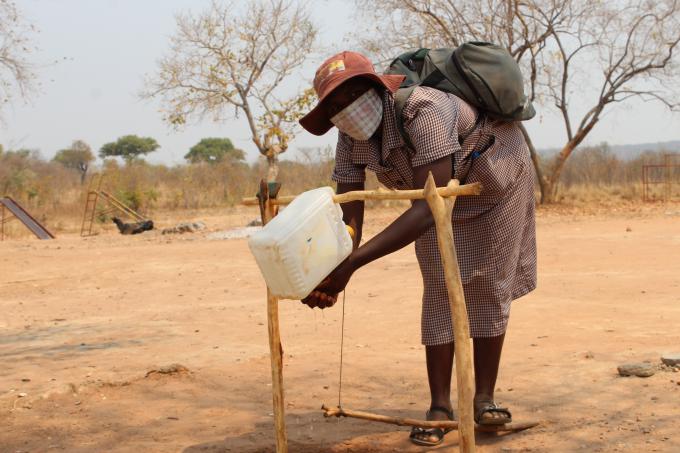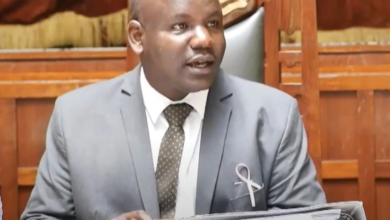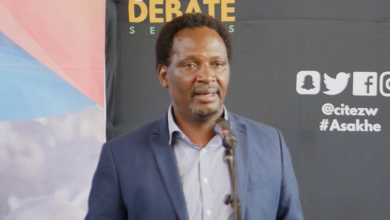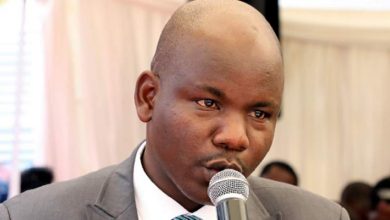
By Andile Tshuma
BOKANI Ncube and Duduzile Moyo from Nhwali, Gwanda South, are tired after a days’ work. They are village health workers and despite feeling weary, they are proud that they met their targets for the day in homestead visits.
While most of their work has been on community health, ensuring families practice good hygiene, children are taken for immunisation and monitoring chronic patients, the Covid-19 pandemic presented them a new, and possibly bigger task and responsibility, as they now provide Covid-19 information and also fight misinformation in their communities.
Village health workers continue to augment the work being done by the mainstream health sector, raising awareness, giving health advice and mobilizing communities on Covid-19 as they have direct contact with the people and also speak the local languages.
For many communities in Gwanda where radio signal is not available due to poor telecommunications infrastructure, it is the village health workers such as Ncube and Moyo who have been responsible for fighting misinformation and for sharing correct timely and relevant news and information about the pandemic.
The community in the area relies on South African radio stations for news, therefore Zimbabwe related news often came in through school pupils, from teachers who frequently went to Gwanda town, or Bulawayo, however with the closure of schools, some communities got cut off completely, for months.
“We have no local radio here, while there is information about Covid-19 generally in these foreign stations with available signal, some of it is not relevant to us, so our people are up to date with happenings in South Africa, but not here. We have been working as community health workers to ensure that the villagers know about Covid-19 and how its spread, what to do and what not to do. The most difficult days were last year, we are veterans in communicating about it now, and we now get communication materials and support from the organisations that support us,” said Ncube.
Moyo said she was using text messaging to communicate with some of her fellow villagers during the lockdown, and reminding those who took BP, Diabetes, ART, and other chronic ailments not to miss their doses. She started a hand wash programme where every homestead in Nhwali now has a foot pedal operated water gallon at the entrance for handwashing, which however had challenges between September and November when water was scarce.
In Zimbabwe as well as in many African countries, Community Health Workers (CHWs), also known as village health workers take care of the most vulnerable patients by providing basic health services.
They are members of the communities they serve and have gone through basic healthcare training. They serve many families, and often act as volunteers or receive only a small compensation.
As the frontline of the healthcare system, CHWs play a pivotal role in reducing the devastating impact of COVID-19.
Communities who spoke to CITE said village health workers were helpful and had shared important life skills, besides sharing helpful information.
“I was taught how to make cloth face masks and I made some for my family and for sale as these are cheap and reusable after washing. My homestead now has isigubhu (tippy tap) for washing hands, my son helped me to install it at the gate, so, my family and visitors can wash hands anytime,” said Nobukhosi Mathe from Kafusi in Gwanda, who benefits from the services of the VHWs.
Community health workers have been receiving support from local public health organisations in carrying out their work across the country.
The Community Working Group on Health (CWGH) has been training Village Health Workers on Covid-19 as trusted sources of information for community literacy.
Itai Rusike, the CWGH Executive Director, said working with village health workers had been one of the most innovative approaches to fighting Covid-19 misinformation in communities.
“The VHWs approach has been one of the innovative approaches to address the rise of misinformation and disinformation that is resulting in the vaccine hesitancy and scepticism thereby contributing to the low uptake of the Covid-19 vaccine rollout program in the rural areas,” said Rusike.
He said informed community participation was needed in ensuring the success of the vaccination programme countrywide, and said the village health workers were pivotal in the mobilisation of communities to support the programme.
“Informed community participation and community ownership of the Covid-19 national vaccination programme is key in encouraging communities to embrace the vaccine and willingly come forward to be vaccinated if the country is to achieve the required herd immunity of vaccinating at least 60 percent of the population.
Rusike called for support of village health workers whom he said were often under-resourced and worked in unsafe conditioned.
He said in some villages they worked without full personal protective equipment.
“Unfortunately the VHWs are often undersupplied with Personal Protective Equipment (PPE) and because of the corona fear, VHWs are extra worried about their own safety as there is a serious shortage of protective gears such as masks and sanitisers,” he said.
Some village health workers have to walk very long distances and cover wide catchment areas, especially in new settlements.
Many of them now work longer hours and more days, yet the work is voluntary.
“There is also a shortage of VHWs especially in the resettlement areas as some of the VHWs are covering a very large catchment area and cycling long distances due to the low numbers – the country has about 10 000 VHWs out of the national need of about 20,000 hence instead of working for only three days a week and three hours a day VHWs are now working 24/7 and therefore seizes to be volunteers who are supposed to attend to their household chores and work in their fields before going into the community,” said Rusike.
Matabeleland South Provincial Information Officer (PIO) and Chairperson for the Sub-committee for Risk Communication Task Force Austin Nyathi said community health workers were an indispensable group that ‘saved the day’ in communication with communities on Covid-19 related issues.
“We have risk communication teams in all the 7 districts of Matabeleland South. These teams take on board the village health workers, traditional leaders and opinion leaders, the trained health champions and everyone. So access to Covid-19 information has been through these teams. They use hailing roadshows, poster distribution and we also rely on the media. We also incorporate police, so that they sanitise people and remind them of Covid-19 etiquette at roadblocks as they are travelling,” said Nyathi.
He said VHWs were pivotal as they spoke local languages and shared good relations with communities which made it easier for the dissemination of information about the pandemic.
“We have also been using the drought relief programmes, we first address them on Covid-19 before the food distributions, at ward level. Of late we have been using hailing a lot (loud speaker in a mobile vehicle), because people cannot gather so we address people on the basis of where we find them. If the hailer goes around the community, people get to listen from home or as they go about their business. We use local languages and engage local leadership,” said Nyathi.
He decried poor telecommunications infrastructure in the province as well as a bad road network, which he said hampered their efforts.
He also said that environmental health technicians used motorcycles for places that could not be accessed by cars, especially in resettlements.
“Places such as Siboza, Nhwali in Gwanda South, radio access is very limited while in places such as Kafusi, radio reception is also bad and they use Botswana and South African frequencies. Parts of Mangwe, Brunapeg, Tshitshi and other parts of Plumtree radio signal is also bad. We also use jingles where we work with local artists and use music and drama, some of it coordinated by the community health worker,” Nyathi said.
The Covid-19 pandemic is a strong reminder that the continuity of essential health services needs to be part of a pandemic response and ensuring health security. Protecting the most vulnerable in times of calm or crisis is one of the core principles of Universal Health Coverage, and relies on equitable and resilient health systems.
People having the right information at the right time makes all the difference in saving lives, providing treatment and preventing disease.
More support should be given to VHWs so that they keep serving the communities and providing basic health services and helping in fighting misinformation.





